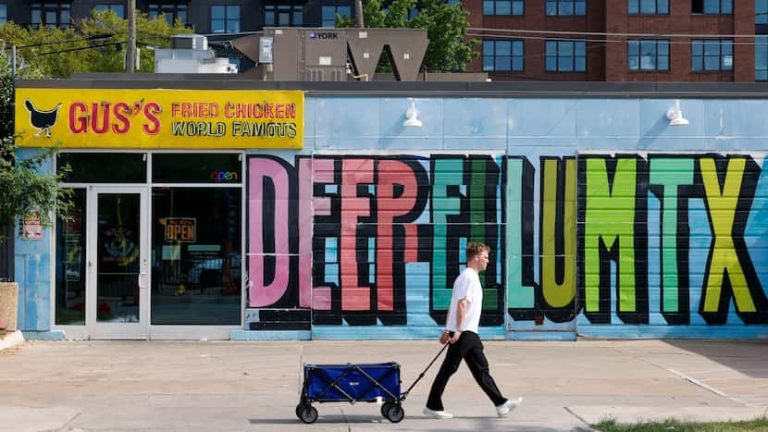For more than two years, Dallas officials have been working with Deep Ellum businesses and local residents to address safety concerns and high noise levels, especially late at night.
Those recommendations will be discussed at a public hearing approved by the city Planning Commission on Thursday. It could be months before the hearing is on the commission’s agenda.
At the center of the plan is a plan to rezone the 274-acre area and require restaurants and bars to get specific use permits to operate after midnight. The rezoning could also add noise restrictions to better meet the needs of an entertainment district that would house live music venues and residential buildings.
This week’s vote did not change the area’s zoning — it merely sought community input — but those with an interest in the business district’s future say it’s a step toward addressing its perception of being unsafe, as crime continues to fall.
According to a memo from the city’s Department of Planning, some establishments in the entertainment hub have licenses typically given only to restaurants that don’t operate outside of business hours, meaning two bars on the same street with the same clientele and music systems could look different on paper and be subject to different security rules.
Stephanie Keller Hudiberg, executive director of the Deep Ellum Foundation, said it’s a big challenge for a nightlife district that prides itself on its historic ties to music and the arts and is at its busiest on Saturday nights.
The recent injuries and shootings also occurred between 1:00 and 2:00 a.m.
A “late-night specific use permit” requirement could level the playing field and increase accountability, because all late-night businesses would have to adhere to the same regulations on safety measures and alcohol sales, she said.
The late night permit is a key part of Deep Ellum’s community safety plan.
In 2022, partners from city departments, including the Dallas Police Department and Code Compliance, worked with Deep Ellum businesses, residents and City Councilman Jesse Moreno, who oversees the neighborhood, to release a plan with recommendations on enforcing parking violations, improving roads, addressing homelessness and adding more security forces to police the neighborhood.
Deep Ellum is also seeing rapid growth as new apartments are being built. Another task force focused on noise levels in the area and came up with a tiered system that divides noise levels that are acceptable in the area’s residential areas from noise levels that would protect the area’s nightlife.
John Hetzel, president of the Deep Ellum Foundation, said similar measures have helped entertainment hubs like Lower Greenville, where crime peaked in 2007-2008.
With funding for crosswalks, lighting and road improvements and businesses in Lower Greenville being granted late-night operating permits, “the perception of violent crime and violent crime has changed almost overnight,” Hetzel said. Much of Deep Ellum’s plan is already in place, Hetzel said. Extra security guards have been added to monitor nightlife, but some suggestions remain for tweaking regulations.
“Nightlife is extremely important, but it needs to be done responsibly,” he said.

